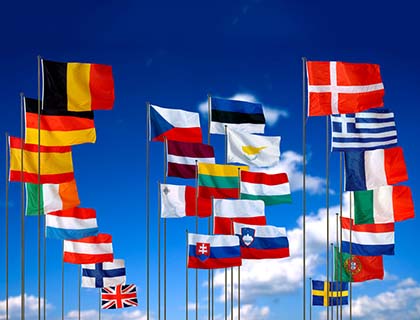KABUL - European Union's Commissioner Andris Piebalgs, who attended the Tokyo conference along with Special Representative and head of delegation to Afghanistan Ambassador Usackas, said on Monday the union would remain a steadfast partner for Afghanistan's stabilization and development.
The conference took stock of the country's reconstruction process and agreed on how to implement development priorities for Afghanistan from 2015 to 2025.
EU Commissioner for Development, Andris Piebalgs, presented the EU's vision of a consolidated partnership with Afghanistan in order to strengthen the country's development, the EU delegation to Afghanistan said in a statement.
Ahead of the conference, Piebalgs said Afghanistan needed to take full ownership of the reconstruction to make the "transformation decade" a success.
The EU has the firm intention to stand alongside Afghanistan in the reconstruction process together with the international community, and to maintain its substantial support. "I'll confirm the EU will maintain its current level of €200 million per year, as minimum," Piebalgs said.
However, he added, Afghanistan needed to fully live up to its commitments by reforming its public finance management, public administration and economy while fighting corruption.
"The government must reinforce its credibility towards the people of Afghanistan and be able to provide the basic social services. We are ready to support it in this endeavor in a spirit of mutual accountability."
The Tokyo conference was the third international meeting in the last two months to consider the long-term future of Afghanistan.
Tokyo was a critical counterpart to the NATO Chicago summit of May 2012 and the Kabul Heart of Asia conference on regional cooperation (June 2012). The Tokyo conference focused on the government of Afghanistan's long-term strategy for the country, its priorities and commitments, donors' support for those priorities, and the development of a roadmap to allow the ongoing review of mutual commitments.
"We will ensure that donors fulfill their own commitments by strengthening their coordination to make aid more efficient and targeted in sectors where we can bring a real added value. The EU will focus on health, education and governance, in line with the Afghan priorities", Piebalgs added.
He underlined the fact Afghanistan had made real progress with the help of international community, with the EU contributing more than two billion Euros in the last decade as a whole.
The contributions had supported the transformation of many Afghans' lives and contributed to increase to 65 percent the number of Afghans having access to primary healthcare compared to 9 percent in 2002, increase life expectancy of Afghans, improve maternal health and reduce child mortality.
In seven years, the number of health facilities has increased by 40 percent, and three-quarters of those facilities have at least one female health worker. A decade ago, a million boys went to school, while girls were barred from education. "Today, seven million children attend schools and 40 percent of them are girls," Piebalgs said.
"However, many challenges remain. The fragile security situation is holding back progress and the international community will have to remain committed for the next decade to ensure a sustainable future of the country." (Pajhwok)

